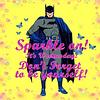Take a photo of a barcode or cover
Graphic: Body horror, Misogyny, Violence, Murder
Moderate: Death, Xenophobia, Grief
Graphic: Death, Blood
Moderate: Animal cruelty, Animal death, Terminal illness, Violence, Grief, Death of parent, Murder
Minor: Alcohol
Graphic: Confinement, Death, Antisemitism, Kidnapping, Murder
Moderate: Ableism, Misogyny, Sexism, Violence, Blood
Minor: Animal death, Child death, Terminal illness, Blood, Stalking
Graphic: Death, Blood
Moderate: Body horror, Sexism
Graphic: Death, Blood, Murder
Graphic: Death, Blood, Murder
Moderate: Misogyny
Minor: Death of parent
Graphic: Death, Sexism, Violence, Forced institutionalization, Blood
Graphic: Death, Mental illness, Sexual content, Blood, Murder, Schizophrenia/Psychosis
Moderate: Animal death, Death of parent, Injury/Injury detail
Minor: Racial slurs
It is true that part of the subtext comes from the Victorian era mentality of morality that some might seem stiff nowadays, but the implications of non consensual interactions the characters have to go through and the implications these have on the mind will always be scary until the end of time.
Moderate: Death
One of the more interesting parts of the novel was that one of the main characters is a more traditional woman and the other calls herself a New Woman. She's said to have the mind of a man, so it's still pretty sexist, but she does take an active, even pivotal, role in the battle against evil.
What I didn't like as much is how all men fall in love with the traditional woman, who gets three proposals in one day, then later on keep kissing the New Woman's hand and telling her they wouldn't mind dying for her, etc. It's just too much.
I had some difficulty understanding one of the main characters, doctor Van Helsing. He's Dutch and I think that's why his grammar is bad, but as a Dutch person I can say he didn't make the mistakes Dutch people usually make. He clearly loves philosophical discussions, so that combined made it quite hard to understand him sometimes.
All in all, would recommend if you like classics, vampires, mysteries, epistolary novels, Christian fiction, or feminist literature (because Mina Harker is pretty cool).
Graphic: Death, Mental illness, Sexism, Forced institutionalization
Moderate: Death of parent
Minor: Blood









